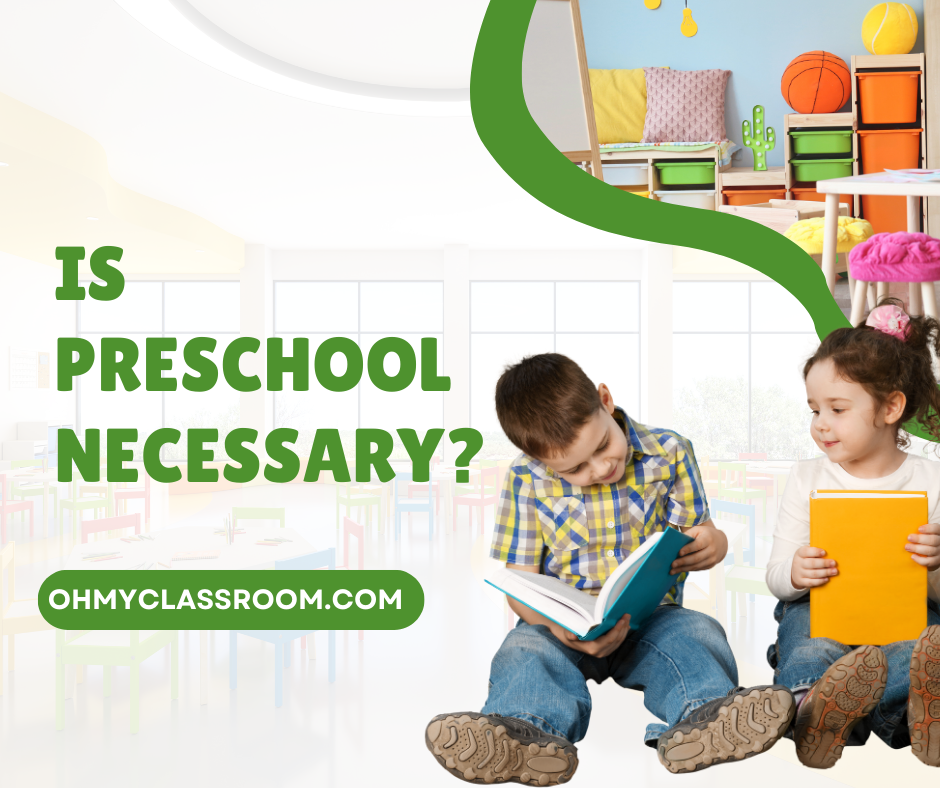For many parents, preschool is not always the best option for their children.
Perhaps it is too expensive, too far away, or maybe you simply prefer to spend more time with your child before they start formal education.
So what are some of the best alternatives to Preschool kids?
| Alternative | Description | Age Suitability | Cost | Socialization | Parental Involvement |
|---|---|---|---|---|---|
| Home-Based Learning | Structured learning environment at home | 2-5 years | Low to Moderate | Variable | High |
| Playgroups | Social interaction and group activities | 2-5 years | Low to Moderate | High | Moderate |
| Montessori at Home | Child-led learning and practical skills | 2-6 years | Low to Moderate | Moderate | Moderate |
| Online Learning Platforms | Educational apps and resources online | 2-6 years | Variable | Limited | Moderate |
| Educational Apps and Games | Digital learning tools for young children | 2-6 years | Variable | Limited | Low to Moderate |
| Cooperative Learning | Learning with other families | 2-6 years | Low to Moderate | High | High |
| Nature-Based Learning | Outdoor exploration and nature education | 2-6 years | Low to Moderate | High | Moderate |
| Homeschooling | Structured or child-led home education | 2-6 years | Variable | Limited | High |
| Childcare Centers | Early education and socialization | 2-6 years | Moderate to High | High | Low to Moderate |
| Library Programs | Storytimes and educational activities | 2-6 years | Low | Moderate | Low |
Related: Free Preschool Worksheets Age 3 – 5 (PDF)
Is preschool necessary?

No, preschool is not necessary. There are a number of alternative options that can provide similar benefits.
One option is to enroll your child in a play-based program at a local community center.
These programs typically emphasize social and emotional development, rather than academic skills.
In addition, some parents choose to simply spend more time working with their children at home on educational activities.
Whichever route you choose, the important thing is to make sure your child is getting the individualized attention they need to thrive.
Related: Benefits of Preschool vs Staying home Learning for Kids
Is it OK to skip preschool?
There is no one answer to this question as it depends on a variety of individual factors.
Some children may benefit from attending preschool, while others may do just as well without it.
Factors to consider include the child’s temperament, the family’s financial situation, and the quality of the preschool program.
Some researchers have found that children who attend preschool are more likely to do well in school and are less likely to need special education services.
Other studies have found little difference between the academic achievement of children who attend preschool and those who do not.
Ultimately, the decision of whether or not to send a child to preschool should be made on a case-by-case basis.
Related: 50 Preschool vs No Preschool Statistics 2023
Related: Is Preschool and Pre-K the same thing?
7 Preschool & Kindergarten Alternatives
Home Schooling
One popular alternative is homeschooling.
This option allows parents to tailor their child’s curriculum to their specific needs and interests. Additionally, homeschooling allows for greater flexibility in terms of scheduling and location.
Homeschooling provides children with a more intimate learning environment and allows parents to instill their own values.
however, it requires a great deal of time, energy, and commitment from parents.
Not all families are well-suited to homeschooling, so it’s important to give this option careful consideration before making a decision.
Play-based Programs
Another alternative to preschool is play-based programs offered by community organizations or private companies.
These programs typically emphasize social and emotional development, rather than academic skills.
Play-based programs can be a good option for parents who want their children to have a more relaxed and fun learning environment.
However, these programs may not provide the same level of structure or academic rigor as a traditional preschool.
Tutoring
Some parents choose to hire a private tutor to work with their child on a one-on-one basis.
This can be an especially good choice for children who have specific learning needs.
A tutor can help your child to catch up to their peers or get ahead in school.
Tutoring can be expensive, so it’s important to make sure you find a qualified tutor who is a good fit for your child.
Outdoor Play-Based Activities
Another alternative to preschool is enrolling your child in outdoor play-based activities.
This option allows children to explore and learn in a natural environment.
Outdoor play-based activities can include things like hiking, camping, gardening, and nature walks.
These activities can help children develop gross & fine motor skills, social skills, and a love of nature.
Online Educational Games
There are a number of online educational games and activities available for children.
These can be a great way to supplement your child’s learning at home.
Online educational games and activities can help children develop academic skills, such as reading, writing, and math.
They can also help children develop important life skills, such as problem-solving and critical thinking.
Some popular online educational games for preschoolers include “ABCMouse”, “PBS Kids”, and “FunBrain”.
Family Child Care
Family child care is another option that offers a more intimate setting for young children.
This type of care is provided by a licensed family child care provider who may care for up to six children in their home.
This option can be more affordable than traditional preschools and can provide a more flexible schedule for parents.
Related: 20 Preschool Activities About Family
Arts & Crafts
Arts and crafts are a great way for children to express their creativity.
Craft activities can also help children develop fine motor skills and eye-hand coordination.
Some popular arts and crafts activities for preschoolers include painting, drawing, sculpting, and collage.
There are a number of arts and crafts kits available commercially, or you can create your own arts and crafts projects at home.
Conclusion
In conclusion, there are plenty of fun and engaging alternatives to preschool that can provide young children with a strong foundation for their academic and social development.
From Montessori to co-op preschools to play-based learning, there’s an option out there for every family.
So don’t be afraid to explore and find the best fit for your little one’s unique needs and personality. Happy learning!
References
- Homeschooling: A Comprehensive Survey of the Research by Brian D. Ray (2017) – This study provides an overview of the research on homeschooling and its effectiveness as an alternative to preschool.
- “The Effects of Home-Based Early Head Start on Child and Parent Outcomes: A Randomized Trial” by John L. Brooks et al. (2016) – This randomized controlled trial examines the impact of home-based Early Head Start on children’s and parents’ outcomes, and compares it to center-based Early Head Start and control groups.
- “Unschooling: Exploring Learning Without School” by Peter Gray (2013) – This article discusses the philosophy of unschooling, a type of homeschooling that is based on child-led learning and does not follow a formal curriculum.

